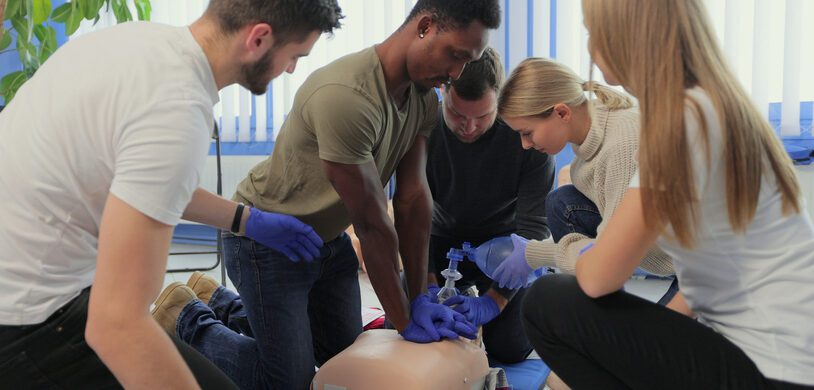Cardiopulmonary resuscitation (CPR) is a crucial life-saving skill that can mean the difference between life and death in emergency situations. It is a technique used to manually pump blood and provide oxygen to the brain and other vital organs when someone’s heartbeat or breathing has stopped. While it’s commonly associated with medical professionals, CPR is a skill that everyone should learn. In this article, we’ll delve into the reasons why knowing CPR is essential for individuals of all ages and backgrounds.
Immediate Response Saves Lives
In critical situations, every second counts. The prompt application of CPR can dramatically increase a person’s chance of survival. Studies have shown that the likelihood of survival decreases by 7-10% for every minute that passes without CPR. Therefore, having the knowledge and confidence to perform CPR can make a significant impact on someone’s chances of recovery.
Bystanders Are Often the First Responders
Emergencies can happen anywhere, and often, it’s the people on the scene who have the opportunity to initiate life-saving measures. According to the American Heart Association, nearly 70% of out-of-hospital cardiac arrests occur in homes, which means that family members or bystanders are often the first to witness such incidents. Knowing how to perform CPR empowers individuals to take immediate action while waiting for professional help to arrive.
Increased Survival Rates
Numerous studies have demonstrated a direct correlation between bystander CPR and improved survival rates. When CPR is administered promptly, it can double or even triple the chances of survival after cardiac arrest. In many cases, it can buy crucial time until advanced medical care arrives.
It’s Easy to Learn
Contrary to common misconceptions, CPR is not an exclusive skill reserved for healthcare professionals. Basic CPR techniques can be learned and mastered by anyone, regardless of their background or level of medical knowledge. Courses are widely available, and they typically cover the fundamentals of chest compressions and rescue breaths, making it accessible to a broad audience.
Peace of Mind
Knowing CPR provides a sense of preparedness and confidence in handling emergency situations. It allows individuals to take control of the situation and potentially save a life, offering peace of mind in situations where quick action is paramount.
Empowerment in the Face of Helplessness
Emergencies can be chaotic and overwhelming, causing panic and fear. Knowing CPR equips individuals with a tangible skill they can use to take action and potentially save a life. This sense of empowerment can make a significant difference in high-pressure situations.
Safety in Various Environments
Accidents and medical emergencies can occur in a wide range of settings, from the workplace to recreational spaces. Having a working knowledge of CPR means being prepared to respond effectively in any environment, including homes, schools, offices, and public places.
Support for Vulnerable Populations
Certain groups of people, such as the elderly and individuals with chronic medical conditions, are more susceptible to cardiac events. Having a trained caregiver or family member with CPR knowledge can be a lifeline for these vulnerable populations.
Complementing Automated External Defibrillators (AEDs)
AEDs are portable devices that can analyze heart rhythms and, if necessary, deliver an electric shock to restore a normal heartbeat. When used in conjunction with CPR, AEDs significantly enhance a person’s chances of survival. Many public places, including airports, shopping malls, and sports facilities, are equipped with AEDs, emphasizing the importance of knowing how to perform CPR.
CPR is a fundamental skill that everyone should possess. Its potential to save lives cannot be overstated, and it empowers individuals to take immediate action in emergency situations. With easily accessible training courses and widespread availability of AEDs, there’s no reason not to learn CPR. By equipping ourselves with this life-saving skill, we contribute to creating safer communities and increasing the chances of survival for our loved ones and fellow citizens. Remember, it’s not just a skill for medical professionals; it’s a skill for humanity.
Y-CPR Academy provides American Heart Association (AHA) CPR training classes with professional, certified AHA instructors who teach CPR to workplaces, healthcare providers, childcare providers, individuals, and groups. Contact Y-CPR Academy today to learn more and ask about our mobile classes.

